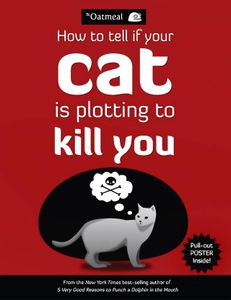It is rare to come
across a novel that not only tells a fascinating story, but has taken
a fascinating journey on its own. The Eternal Wonder, this
elegant, quiet, and patient novel about an artistic genius's
psychological and emotional development, was only recently discovered
in a storage unit in Texas, forty years after Buck died in Vermont. And we
should all be supremely grateful for that discovery, for Buck's final(?) novel anchors and broadens an already esteemed body of work, one
that won her the Nobel Prize in Literature in 1938.
Pages
▼
10/28/13
Review: The Circle by Dave Eggers
 The Circle by Dave Eggers (Knopf, 2013, 504 pages)
The Circle by Dave Eggers (Knopf, 2013, 504 pages)Actually, I wanted to call this review "The Circle, or REALLY? REALLY??!!). But before I get to that, I wanted to acknowledge the many (often negative) reviews that have been written about this novel. Most of these reviews have bemoaned the fact that Eggers (as he openly acknowledged) didn't do any research related to technology or tech companies for the book. In fact, he doesn't seem to understand quite how the internet works.
I, however, wish to focus on a different aspect of Eggers's novel. It is with the narrative itself that I have problems. Many, MANY problems. And these problems I shall lay out in a series of questions.
So without further ado... (oh and beware: SPOILERRRRS below!!!)
Rachel's Random Recommendation #6: Borges
 Ficciones (1944) by Jorge Luis Borges
Ficciones (1944) by Jorge Luis BorgesI first read this book when it was assigned in my Critical Theories grad seminar. Up until then, I hadn't even heard of Borges, much less his vast and complex body of work. Without knowing what to expect, I opened my used copy of Ficciones while riding on the bus to campus one morning and was reminded a bit of the works of Gabriel Garcia Marquez. But soon, I forgot about Marquez, the bus, grad school, and the people around me, for I was reading "Pierre Menard, Author of The Quixote" (1939), a story that explores authorship, translation, and interpretation. What if you transcribed, word-for-word, another writer's work? Does it somehow become your own?
10/25/13
Bookish News (week of October 21)
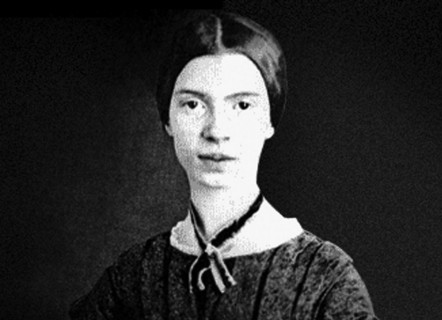 A complete online archive of Emily Dickinson's writing (in high-res) was launched on Wednesday (you can find it here). And Harvard and Amherst are still at each other's throats over whose collection of Dickinson's papers is more "legitimate." Sigh.
A complete online archive of Emily Dickinson's writing (in high-res) was launched on Wednesday (you can find it here). And Harvard and Amherst are still at each other's throats over whose collection of Dickinson's papers is more "legitimate." Sigh.In a New York Times interview, J. J. Abrams said that his favorite writers include Twain, Graham Greene, Salinger, and H. G. Wells. Can't argue with that list.
And because it's cool, here's a "Brief History of Publishing."
10/24/13
5 Hilarious How-To Books
Oh, dear.
Apparently, there are how-to books, and then there are how-to books. I mean, what a wonderful place this world is when you can find books that help you in your quest to date a vampire, hypnotize anyone in under a minute, or be the best zombie you can be. You want to do ____? There’s a book for that, people. And in keeping with this helping spirit, I give you five of the most hilarious how-to books. Some of these are meant to be funny, and some are, sadly, meant to be taken very, very seriously. I’ll let you decide which is which!
I gotta say, this book has to be my favorite “how-to.” I mean, all
this time I was thinking that my parents’ sweet little kitty was showing
his affection by kneading their stomachs with his paws or dropping dead
bugs at their feet. The Oatmeal here tells us otherwise. Kneading a
human is a cat’s way of checking for weak organs! Dead things dropped at
your feet are WARNINGS, NOT PRESENTS! Who knew?
Apparently, there are how-to books, and then there are how-to books. I mean, what a wonderful place this world is when you can find books that help you in your quest to date a vampire, hypnotize anyone in under a minute, or be the best zombie you can be. You want to do ____? There’s a book for that, people. And in keeping with this helping spirit, I give you five of the most hilarious how-to books. Some of these are meant to be funny, and some are, sadly, meant to be taken very, very seriously. I’ll let you decide which is which!
How to Tell if Your Cat is Plotting to Kill You by The Oatmeal (Matthew Inman) (Andrews McMeel Publishing, 2012)
Review: The Meaning of Everything by Simon Winchester
 The Meaning of Everything: The Story of the Oxford English Dictionary by Simon Winchester (Oxford University Press, 2003, 250 pages).
The Meaning of Everything: The Story of the Oxford English Dictionary by Simon Winchester (Oxford University Press, 2003, 250 pages).Who knew that a book about the writing of a massive dictionary would be so fascinating?!
It could be that I enjoyed this book because I'm just a downright nerdy-nerd, or that I love books and words and language, or even that I love the history of...anything, really. Whatever the reason, this book truly is worth reading. I don't know how he does it, but Simon (my buddy, my pal) makes any subject he touches seem interesting: the making of the OED, the eruption of Krakatoa, the birth of modern geology and mapping. Man writes about it ALL.
10/23/13
Books to Look For (October): Science Fiction, Fantasy, & Humor
Science Fiction

The Cusanus Game by Wolfgang Jeschke (Tor Books, 544 pages, October 15)
"In the tradition of Stanislaw Lem and Philip K. Dick, a novel of future disaster in Europe by the grand master of German science fiction." Mutating human DNA, extinctions, time travel- this book looks sooooooo gooooood...

The Cusanus Game by Wolfgang Jeschke (Tor Books, 544 pages, October 15)
"In the tradition of Stanislaw Lem and Philip K. Dick, a novel of future disaster in Europe by the grand master of German science fiction." Mutating human DNA, extinctions, time travel- this book looks sooooooo gooooood...
10/21/13
Rachel's Random Recommendation #5: Wharton
 EDITH WHARTON
EDITH WHARTON The House of Mirth (1905)
The Age of Innocence (1920; Pulitzer Prize)
Prolific and masterful, Wharton was appreciated both in her own time and in ours. Her delicately scathing (yes, you read that right!) novels about upper-class society in turn-of-the-20th-century America reveal the scandals, hypocrisies, and delusions that went to its very core. What makes her novels so timeless is Wharton's ability to write about a group of people from the inside out, having lived the life she skewers and examining its elements with a cold, often dispassionate, eye.
Out of the Depths: RETRIBUTION
Thank goodness! I hear you say. Finally, we get to find out what those old, musty books were actually about! Let’s begin with Retribution.
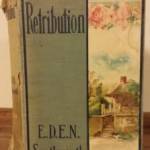
Retribution: A Tale of Passion (1849) by E. D. E. N. Southworth
Passion? Oh yes, this book has passion. It’s so very steamy, in fact, that I could only hold it while wearing oven mitts. I mean, check out this racy sentence:

Oh my!
And if you still have doubts, check out this photo of the hot mamma who wrote it.
But I’m getting ahead of myself. Emma Dorothy Eliza Nevitte Southworth (1819-1899) was one of the most popular novelists of her time, publishing her works serially and making a freakin’ ton of money in the process. Retribution, written in 1849, was, in fact, her first serialized novel. So if you’re into a mixture of high melodrama and often smarmy sentimentalism, Southworth’s your gal. Woman had quite the imagination.

Retribution: A Tale of Passion (1849) by E. D. E. N. Southworth
Passion? Oh yes, this book has passion. It’s so very steamy, in fact, that I could only hold it while wearing oven mitts. I mean, check out this racy sentence:
“…he stole his arm around her waist, and sighed forth his whole soul in the syllables of her name, “Juliette! Juliette!” (110).

Oh my!
And if you still have doubts, check out this photo of the hot mamma who wrote it.
But I’m getting ahead of myself. Emma Dorothy Eliza Nevitte Southworth (1819-1899) was one of the most popular novelists of her time, publishing her works serially and making a freakin’ ton of money in the process. Retribution, written in 1849, was, in fact, her first serialized novel. So if you’re into a mixture of high melodrama and often smarmy sentimentalism, Southworth’s your gal. Woman had quite the imagination.
10/18/13
Baltimore: A Bookish Kind of Town
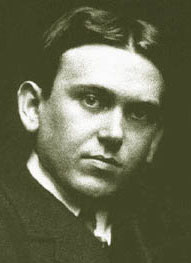 Anytime someone mentions my hometown of Baltimore, (or “Bawlmer,” as some say), you probably think of The Wire
or John Waters films. But if you’re of the literary persuasion, you
also think of H. L. Mencken, Edgar Allan Poe, Dashiell Hammett, and
Adrienne Rich. And if you’ve spent any amount of time in Baltimore, you
know that Poe is a bit of an obsession around there. An unknown fan used
to leave some cognac and three roses on his grave once a year, and the
city’s football team is named after Poe’s famous poem. And yet, Poe
wasn’t even born in Baltimore; he just died there. Mencken, on the other
hand, was a Bawlmorean through-and-through. He’s even been called the
“Sage of Baltimore,” and the house in which he lived is a National
Historic Landmark.
Anytime someone mentions my hometown of Baltimore, (or “Bawlmer,” as some say), you probably think of The Wire
or John Waters films. But if you’re of the literary persuasion, you
also think of H. L. Mencken, Edgar Allan Poe, Dashiell Hammett, and
Adrienne Rich. And if you’ve spent any amount of time in Baltimore, you
know that Poe is a bit of an obsession around there. An unknown fan used
to leave some cognac and three roses on his grave once a year, and the
city’s football team is named after Poe’s famous poem. And yet, Poe
wasn’t even born in Baltimore; he just died there. Mencken, on the other
hand, was a Bawlmorean through-and-through. He’s even been called the
“Sage of Baltimore,” and the house in which he lived is a National
Historic Landmark.Out of the Depths (an overview of what I found in the depths of the library)
 Greetings, everyone! I’ve just returned from a dangerous but fascinating adventure. You know Verne’s Twenty Thousand Leagues Under the Sea?
It was kind of like that. But it didn’t involve water. Or a submarine.
Or a freaky captain. Or fantastic sea creatures. It involved books.
Greetings, everyone! I’ve just returned from a dangerous but fascinating adventure. You know Verne’s Twenty Thousand Leagues Under the Sea?
It was kind of like that. But it didn’t involve water. Or a submarine.
Or a freaky captain. Or fantastic sea creatures. It involved books.I hear you saying “but books are not scary!” and I say, no of course not, when they’re bright and shiny and new. But when you go hunting for them in the depths of a university library, far into the stacks where the books sit mouldering for years and years, rarely touched by human hands. Well…the hair is currently standing up on the back of my neck, so…..
Below are five obscure late-19th-century anglophone novels (and when I say “19th century,” I mean the actual, physical book is that old!) that are musty and dusty and probably hadn’t been touched in a century. I haven’t read them yet, so I’m simply going to GUESS what they’re about now, just from their titles and what little info I found about the authors. If any of you readers express particular interest in one or more of these books, I will be glad to write follow-up posts in which I review these musty dinosaurs. Until then, enjoy the smell of old books!
Bookish News (week of October 14)
 The National Book Award finalists were named this week: the fiction category includes Jhumpa Lahiri, George Saunders, and Thomas Pynchon. Yes, I've heard their latest books are fabulous. No, I haven't read them yet. (Sigh).
The National Book Award finalists were named this week: the fiction category includes Jhumpa Lahiri, George Saunders, and Thomas Pynchon. Yes, I've heard their latest books are fabulous. No, I haven't read them yet. (Sigh).New Zealander Eleanor Catton won the Man Booker Prize, Britain's most prestigious literary prize, for her novel The Luminaries (800+ pages long). She's also the youngest writer to have ever won it. I guess her next novel will have to be over 1,000 pages, right?
I'll just let the title of this article speak for itself: "Noel Gallagher [of the band Oasis] says reading fiction 'a waste of fucking time'." Umm, what the &*%^&&%^ ????? I...there...no words....just....oh my god...
10/17/13
Review: Telegraph Avenue by Michael Chabon
 Let me first say that Telegraph Avenue (Harper Collins, 2012) is quite a bit different from the other Chabon novel I've read, namely, The Yiddish Policemen's Union. I mean, one is about an alternate universe in which Jews settled in Alaska instead of Israel after the Holocaust and all kinds of weird stuff happens, while the other is about two present-day Oakland families (one white, one black) and their complicated personal, financial, and legal tangles.
Let me first say that Telegraph Avenue (Harper Collins, 2012) is quite a bit different from the other Chabon novel I've read, namely, The Yiddish Policemen's Union. I mean, one is about an alternate universe in which Jews settled in Alaska instead of Israel after the Holocaust and all kinds of weird stuff happens, while the other is about two present-day Oakland families (one white, one black) and their complicated personal, financial, and legal tangles.And yet, the thread that joins these two novels comes in the form of Chabon's ecstatic prose and living, breathing characters. In Telegraph Avenue, Chabon riffs (oh yes I did drop that musical pun) on the ever-present tension in this world between the "old" and the "new."
10/16/13
Books to Look For (October): History, Comics/Graphic Novels, & Travel
History
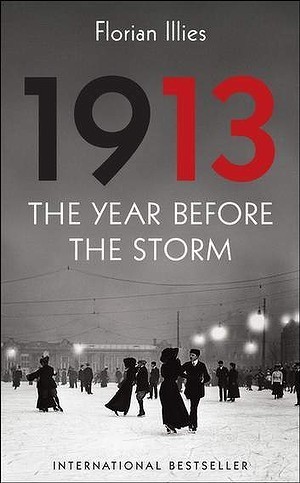 1913: The Year Before the Storm by Florian Illies, Transl. Shaun Whiteside & Jamie Lee Searle (Melville House, 272 pages, October 29)
1913: The Year Before the Storm by Florian Illies, Transl. Shaun Whiteside & Jamie Lee Searle (Melville House, 272 pages, October 29)
Just before World War I did it's whole destroy everything!!! thing, Europe and America were bursting at the creative seams. Nineteen-thirteen was more than just the year before the "war to end all wars": it was the year of Ford, Louis Armstrong, Charlie Chaplin, Proust, and Picasso. Seriously- a must read, people.
 1913: The Year Before the Storm by Florian Illies, Transl. Shaun Whiteside & Jamie Lee Searle (Melville House, 272 pages, October 29)
1913: The Year Before the Storm by Florian Illies, Transl. Shaun Whiteside & Jamie Lee Searle (Melville House, 272 pages, October 29)Just before World War I did it's whole destroy everything!!! thing, Europe and America were bursting at the creative seams. Nineteen-thirteen was more than just the year before the "war to end all wars": it was the year of Ford, Louis Armstrong, Charlie Chaplin, Proust, and Picasso. Seriously- a must read, people.
10/14/13
Rachel's Random Recommendation #4: Norris
 FRANK NORRIS'S "EPIC OF THE WHEAT" TRILOGY
FRANK NORRIS'S "EPIC OF THE WHEAT" TRILOGY The Octopus (Doubleday, Page; 1901)
The Pit (Doubleday, Page; 1903)
The Wolf (never completed)
Oh, Frank Norris. I spent YEARS with this writer, y'all, YEARS, I say, cause he wanted to be all up in my dissertation. Of course I wanted him in it, but after, like, 3 years of wrangling with his novels and stories and essays and all the other gazillion things this dude wrote, I was SO TIRED of Frank Norris. But now that several years have passed since the "diss" has been dismissed, I'm thinking fondly again of ol' Frank.
Review: The Best American Travel Writing 2013 (ed. Elizabeth Gilbert)
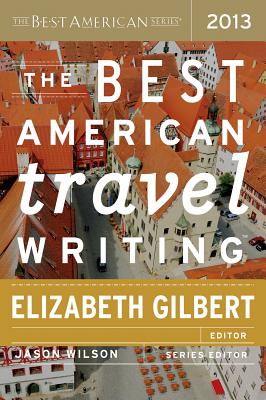 Ladies and gentlemen, please take your seats and fasten your
seatbelts. Make sure your seatbacks and tray tables are in their full
upright and locked position, cause this is gonna be one wiiiiilllld ride.
Ladies and gentlemen, please take your seats and fasten your
seatbelts. Make sure your seatbacks and tray tables are in their full
upright and locked position, cause this is gonna be one wiiiiilllld ride.Before we begin, let’s all give a big “thank you” to Elizabeth Gilbert of Eat, Pray, Love fame for providing us with such a varied itinerary. I mean, you’ve got your Cuba, Egypt, Peru, and New Orleans; your pirate coves and cockfights and secret Vietnamese recipes; your musings and histories and speculations. Seriously, what more could you want?!
For this review, I’ve selected the most riveting, fascinating essays from The Best American Travel Writing 2013 for us to tour, essays that will make you drop whatever you’re doing, grab the nearest computer, and book a flight to England, or Egypt, or Tanzania. So what are we waiting for?
10/11/13
Bookish News (week of October 7)
 CLEARLY, the biggest bookish news of the week is that Canadian author Alice Munro won the Nobel Prize in Literature. I haven't read her yet (I know, I'm terrible), but I certainly plan to. I swear.
CLEARLY, the biggest bookish news of the week is that Canadian author Alice Munro won the Nobel Prize in Literature. I haven't read her yet (I know, I'm terrible), but I certainly plan to. I swear.
* * *
This week marks the 64th anniversary of Edgar Allan Poe's death on the streets of Baltimore. I always knew that city was unhealthy. Poor Edgar. Well, he's got a football team named after one of his poems, so I guess that's something.
* * *
McDonald's plans to include nutrition-themed books in Happy Meals in November. Yes, you read that correctly. Poor Happy Meal toys. Even they get furloughed sometimes.
10/9/13
Books to Look For (October): Biography, Literary Fiction, & Mystery
10/6/13
Rachel's Random Recommendation #3: Doyle
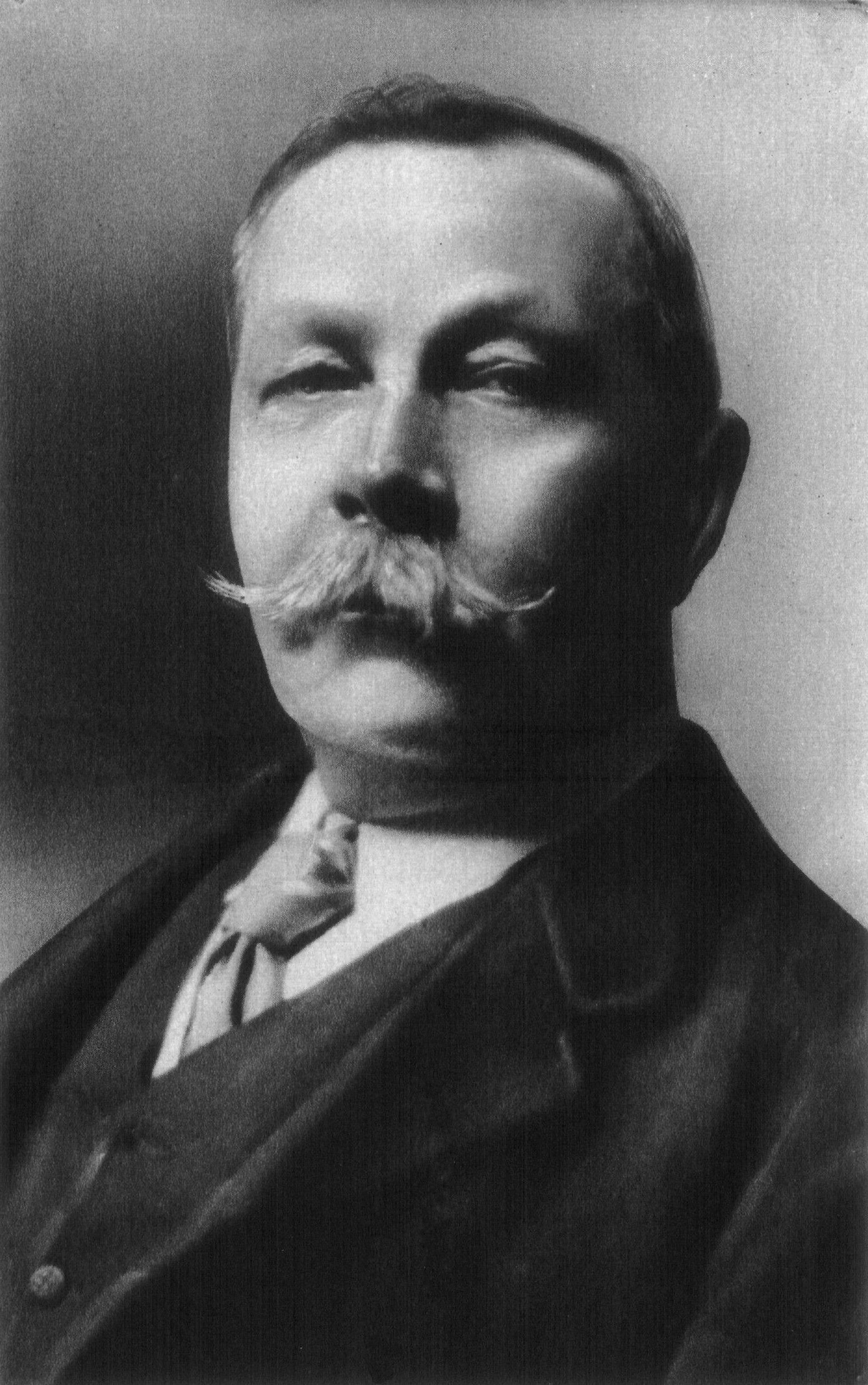 ALL THINGS DOYLE
ALL THINGS DOYLEThe Life of Sir Arthur Conan Doyle (Carroll & Graf, 2003) by John Dickson Carr; The Lost World and Other Thrilling Tales (Penguin Classics, 2001), ed. Philip Gooden
When I say "Doyle," you think "Sherlock Holmes," right? Welllll, let me tell you something- Sir Arthur would have been quite angry with you. You see (according to Carr's biography), Doyle thought of himself more as a writer of historical fiction than of detective stories, which he wrote almost as an afterthought at times. The fact that Sherlock Holmes took England and America by storm actually surprised him. Doyle was actually most proud of historical novels like Micah Clarke (1889) and The White Company (1891). Crazy interesting, right?! Well, if you've ever wondered about Doyle's love life (kind of steamy), his decision to become a doctor and a writer, and his strong views on the Boer Wars, Carr's biography is for you.
10/4/13
Review: San Miguel by T. C. Boyle

I can't remember the last time I had such a strange feeling while reading a book. From the moment I started San Miguel (Viking Penguin, 2012), I felt like I had stepped into a time-distortion machine, where everything seemed to slow down. For the first 30 pages or so, I wondered if the book would "pick up," or just plod along like the poor over-worked horses that dragged baggage and food and other items up and down the hill between the Pacific Ocean and the lonely island house. It didn't pick up, but that soon became just fine with me. And I realized that this is one of those few books that make you forget that you're reading and tricks you into believing, instead, that you're living the story.

